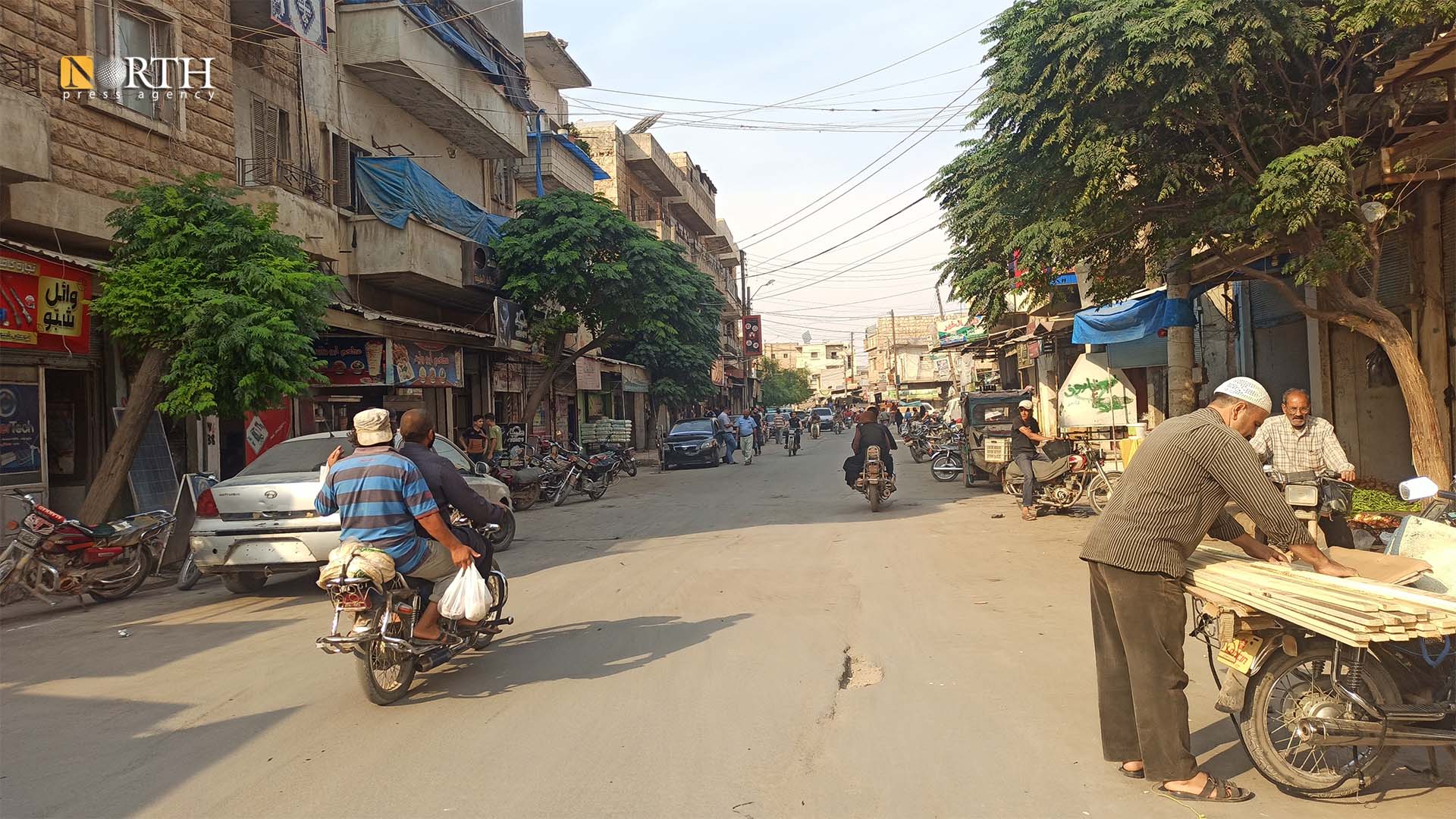IDLIB, Syria (North Press) – 13-year-oldSamar al-Kanj lost her life 24 hours after being forced into childbirth.
A year before, al-Kanj’s family married their daughter off, making her a victim of early marriage, a custom which is widespread in northwest #Syria’s #Idlib.
Al-Kanj’s mother, an IDP from the city of Saraqeb residing Idlib, said that her daughter suffered from psychological stress after bearing the burdens of marriage. “Her health condition took a turn for the worse after her pregnancy, and she suffered from anorexia, severe malnourishment, and after a premature and difficult birth, she passed away.”
“I did not predict the results of this marriage, but regret is of no use now,” she added.
Girls in Idlib and its countryside are forced into early marriage due to traditions, in addition to the economic burdens that push their families to marry them off, as the groom will take care of them.
In March 2019, the First Sharia Judge in Damascus Mahmoud al-Maarawi said to the pro-government al-Watan newspaper, “the percentage of the marriage of minors during the years of crisis has increased to 13%, after it did not pass 3%, most of them in accordance to customary marriages.”
Two years ago, 16-year-old Amra al-Taha (a pseudonym) was displaced from the Ma’arat al-Numan countryside to a camp located in the vicinity of Atam Camp and married.
Immediately after her marriage, her pregnancies ended in three consecutive miscarriages and she is now undergoing treatment by a gynecologist, who advised her to delay pregnancy after she is 18.
Minor mother
Rahaf al-Aboud, a gynecologist in the city of Sarmada, north of Idlib, said that even if a girl appears fully grown, “her organic growth is not yet completed, and thus she cannot bear the effects of pregnancy and childbirth.”
Al-Aboud pointed out that underage pregnancy poses a threat to the girl and causes dangerous complications including difficult birth, bleeding which may lead to death, in addition to pregnancy disorders, diabetes, and miscarriage.
Moreover, the fetus may suffer from respiratory failure due to underdeveloped lungs, hearing disabilities, birth defects, or lack of oxygen at birth, which in turn leads to cerebral atrophy.
Al-Aboud receives about 30 pregnant women per day at her clinic, including five cases under 18, most of whom suffer from deteriorating health conditions, according to al-Aboud.
Even if these young girls carry their pregnancy to term and give birth without complications, they will find difficulties in raising children because they are very young, lacking life experience and still not fully developed mentally. “An underage mother cannot do her duties like a mature one,” according to a mother of a young girl.
15-year-old Nadia al-Samahi, who is from the town of Hazano in the northern countryside of Idlib, finds difficulties in taking care of her first child, whom she had six months ago.
She said she resorts to her mother or her mother-in-law “to help me in taking care of my little one, as I cannot find out the reason for his constant crying most of the time.”
She explained that her child nearly died several days ago. “While I was breastfeeding, he started coughing and choking, and my husband rushed to take him to the nurse who gave him some first aid.”
Psychological risks
After she obtained a preparatory certificate, the father of the 17-year-old Sumaya al-Yussef (a pseudonym), IDP from the town of Jarjinaz in the countryside of Idlib residing in Idlib city, deprived her of completing her education when he forced her to marry his friend who is 15 years older than her.
“My life with him was like hell. He does not know anything except beating and abuse; whenever I run away from him to my parents’ house, my father beat me in order to return me to my husband’s house, saying I must not leave it unless I am going into my grave.”
Al-Yussef pointed out that she told her mother about her intentions to commit suicide as her life is “no longer bearable.” The mother convinced her father that his daughter’s divorce is better than her death, so she divorced in her fifth month of pregnancy.
“My suffering did not end yet, when I completed my pregnancy and gave birth to my baby, my father did not even allow me to see him, as he carried him to my husband and I was deprived of seeing him,” she added.
Bara’ Abdeen, a psychologist from Idlib, described families marrying off their daughters believing that marriage offers them protection as a “real disaster.”
“However, minor girls, when they rejoice in the wedding party, the white dress, and the gold, they do not realize the responsibilities and burdens that await them far beyond their ages and abilities,” she added.
Abdeen states that depriving a girl of childhood and moving her to a new life with overwhelming responsibilities may lead to mental illnesses such as anxiety, depression, OCD, schizophrenia, and even suicide.
Al-Abdeen stressed on the necessity of raising society’s awareness regarding the risks of this negative phenomenon that carries many health, psychological, and societal consequences.”

